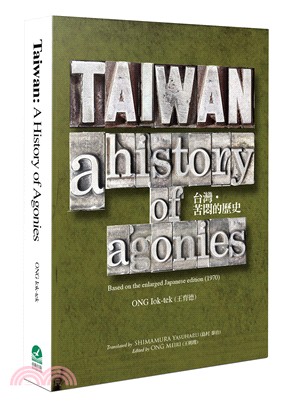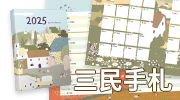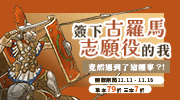TAIWAN: A History of Agonies (台灣‧苦悶的歷史–英文版)
商品資訊
系列名:台灣文史叢書
ISBN13:9789578017825
出版社:前衛
作者:ONG Iok-tek (王育德)
譯者:SHIMAMURA YASUHARU (島村 泰治)
出版日:2016/01/01
裝訂/頁數:精裝/368頁
規格:21cm*15cm*3cm (高/寬/厚)
版次:1
商品簡介
Taiwan: A History of Agonies was a guiding light in the hearts of intellectuals in Taiwan in the dark days under martial law with no trace of freedom of speech. No sooner had the original version in Japanese been published in the 60’s than it won a resounding support in Taiwan. The book was often torn into separate pages to be circulated among as many Taiwanese readers as possible. Every Taiwanese devoured the contents with tears in their eyes—an evidence of how the Taiwanese were moved by every word in the book.
《台灣:苦悶的歷史》曾是禁忌時期台灣知識份子心中的曙光。日文版出版於一九六○年代,刊印後立刻獲得海外讀者的共鳴,甚至為了讓更多的台灣人閱讀,把它拆散輪流看,大家「一面哭一面讀」,可見其感人之處。
In the 70’s a Chinese version was published with Dr. Ong Iok-tek himself supplementing to enrich the contents. The book is still widely read among young people in Taiwan and continues inspiring them.
一九七○年代中文版同樣問世於日本,王育德博士親自補寫,使本書內容更加充實。本書歷久彌新,至今依舊廣泛啟發台灣的年輕一代。
The book describes precisely the tread of Taiwan’s 400-year history, deeply analyzes features and phenomena in each era and eloquently adduces the legitimacy of Taiwan’s independence. The author rightly expounds: “The history of the Taiwanese is the process of their efforts in pursuit of freedom and happiness.”
本書清晰陳述台灣四百年歷史軌跡,深入分析各時代的特色與現象,同時對台灣獨立提出有力的論證。作者精確地說明:「所謂台灣人歷史,就是台灣人在追求自己的自由和幸福而奮鬥的過程。」
This is undoubtedly a masterpiece on the study of Taiwan the author had put his life in. The book not only expels undue fogs in the history of Taiwan and presents yet a fresh vista for a new history.
這本書是作者以生命為賭注,完成的台灣研究的名著,不但為讀者破除了舊的歷史迷霧,並提供新的歷史視野。
This long-awaited English version will be the foundation stone on which for the peoples of the world will deepen their understanding of the Taiwan affairs and the Taiwan-China relations.
這本期待已久的英文譯本,將為世界各地想深入理解台灣事務與台灣、中國關係的人們,提供堅實的基礎。
作者簡介
Author
Ong Iok-tek (1924-1985)
PhD in Literature (Tokyo University)
Professor of Meiji University, Department of Commerce
Instructor in many Universities, e.g. Tokyo University of Foreign Studies
Founder of Taiwan Youth (forerunner of WUFI)
Secretary-General of Council for Implementing Compensation for Ex-Japanese Soldiers of Taiwanese Ancestry
1924 Born in Tainan, Taiwan
1942 Graduated from Taihoku High School
1943 Entered Tokyo Imperial University, Faculty of Literature, Department of Chinese Philosophy/Literature (支那哲文学)
1944 Evacuated to Taiwan, served in City Office, Chia-yi
1945 Theatrical activities while teaching at Tainan First High School
1947 January, Got married
February, 228 Incident; his elder brother Ong Iok-lim who was a prosecutor was killed by KMT government
1949 Took refuge in Japan
1950 Re-entered Tokyo University
1960 Completed graduate studies at Post-Graduate School, Tokyo University
Founded Taiwan Youth (台湾青年社), inaugurated its monthly organ Taiwan Youth (《台湾青年》); devoted much of his time to Taiwan independence movement since then
1975 Founded Council for Implementing Compensation for Ex-Japanese Soldiers of Taiwanese Ancestry; appointed Secretary-General of the council and actively worked toward resolving this problem
1985 September 9, Deceased of myocardial infarction
Publications:
Taiwanese Common Vocabulary (Tokyo, Eiwagogaku-sha, 1957)
Taiwan: A History of Agonies (Tokyo, Kobundo, 1964)
First Step to Taiwanese (Tokyo, Furinshobo, 1972)
Elementary Taiwanese (Tokyo, Nichu-shuppan, 1983)
Taiwan Strait (Tokyo, Nichu-shuppann, 1983)
A Historical Study of Taiwanese (Tokyo, Daiichi-shobo, 1987)
The Complete Works of Ong Iok-tek (in 15 volumes)
A Taiwanese Youth Who Lived Showa (Tokyo, Soshisha, 2011)
Ong Iok-tek’s Seminar of Taiwanese (Tokyo, Toho-shotenn)
And numerous theses on Taiwan problem, linguistics and more.
Editor
Ong Meiri
Chairwoman of World United Formosans for Independence (WUFI) Japan
Director of the Friends of Lee Teng-Hui Association in Japan
Member of the Japan Poets Club
1954 Born in Tokyo
1977 Graduated from Keio University, Faculty of Literature, Department of English/American Literature
1985~ Engaged in cataloging and publication of manuscripts of father, Ong Iok-tek, after his departure in 1985
2011~ Chairwoman, WUFI Japan
Publications:
・Collections of Poems:
Hikidashiga Ippai (Drawers Full of XXXX) (Tokyo, Soshisha, 2003)
Sunflowers in Homeland (Taiwan, Yu Shan-she, 2015)
・Editing:
The Complete Works of Ong Iok-tek (15 volumes) (Taipei, Ch’ien Wei-ch’u-pan, 2002)
A Taiwanese Youth Who Lived Showa (Tokyo, Soshisha, 2011)
・Translation:
Rethinking “One China” edited by John J. Tkacik, Jr. (Tokyo, Soshisha, 2005)
Translator
Shimamura Yasuharu
1935 Born in Tokyo
Education:
1953 Graduated from Saitama Prefectural Urawa High School
1955 Boise Junior College (latter-day Boise State University), Boise, Idaho, U.S.A. (English, music) A.A.
1957 University of Utah, Salt Lake City, Utah, U.S.A. (English, music) B.M.
1960 Los Angeles Conservatory of Music, L.A., California
Profession:
1953-55 Lecturer, Kano Junior High School (alma mater), English and History
1965 Japan Cultural Forum, Japanese leg of the Congress for Cultural Freedom, Paris, and de facto publisher of its Japanese-language organ Jiyu (Freedom)
1972 Royal Norwegian Embassy, chancellor/senior translator
Field of Work:
Apart from creative endeavor in music, engaged exclusively in bilingual translation on all subjects over two decades of foreign service.
Now at the age of Umbrella, or having attained eighty years of age, fully retired into a country life with abundant time for meditation and writing—and for occasional welcome commissions such as Taiwan: A History of Agonies.
序
序
Taiwan, O My Homeland
Taiwan, O my Homeland,
The soil I live and die on,
Where ten million of my fellow countrymen
With me forever share every joy and grief.
Every drop of blood, sweat and tears
Shed over the soil had my ancestors,
Solely in search of good fortune.
Let be past our humiliation-stained past
Let us pry open afresh today
A wholly new history of our own
— Ong Iok-tek
The editor takes the liberty of transcribing in its entirety the preface by Ng Chiau-tong originally written for the Collection of Works of Dr. Ong, including the closing paragraph in which the author expresses his words of gratitude to those who had contributed to have the collection published.
Ng Chiau-tong (黄昭堂)
Professor Emeritus, Showa University, Japan
Seventeen years having elapsed since the passing of Dr. Ong Iok-tek, I feel very much elated to see one of his major works thus published.
Hailed in Tainan, Dr. Ong devoted his entire life to the cause of Taiwan independence movement. He was a spiritual leader and the key man of the movement; it was under his auspices that “The Taiwan Youth”, the predecessor of the World United Formosans for Independence, was inaugurated in 1960. At the height of the Chiang Kai-shek regime’s white terror, Taiwan society was under the grossest of threats, academics being silenced and the Taiwanese populace disrespected and looked down upon as second-class citizens. Dr. Ong was convinced that only upon the establishment of their own nation could the Taiwanese ever free themselves of the misery. That conviction drove him to setting on the arduous road of advocating Taiwan independence.
The magazine “Taiwan Youth “ was a ray of hope for the Taiwanese at that moment of time. A regularly published magazine of a rich variety of theses and contributions on political and cultural issues confronting Taiwan at that time, the “Taiwan Youth “ targeted inspiring spiritual awareness of the Taiwanese. However, the task of promoting such political awareness was for him easier said than done.
Dr. Ong was still then a doctoral student at Tokyo University and concurrently a part-time adjunct instructor at the College of Commerce, Meiji University. Out of his meager income he covered the costs of several Taiwanese students helping him running the magazine. He had quite a heavy load of burdens to bear; while writing essays for the magazine and elsewhere, correcting manuscripts in Japanese, proofreading, printing, mailing, and all the other chores, he personally took part in raising money to keep the magazine going.
The Taiwan Youth was started in Tokyo, the capital of Japan, initially with Taiwanese supporters living in and around Tokyo. Gradually support started coming from Kobe, Osaka and other areas, and soon from the United States in increasing numbers from among the Taiwanese studying there. Later, the Taiwan Youth” changed its name first to the “Society of Taiwan Youth”, then to the “Taiwan Youth Independence Alliance” and, in 1970, as groups of movement for Taiwan independence mushrooming all over the world, it renamed itself again to the “Taiwan Independence Alliance”, and eventually (19xx) to the World United Formosans for Independence (WUFI). Dr. Ong was a man of foresight and inspiration. He held and will hold an immortal position in the history of Taiwan independence movement.
At Meiji University he became a full-time instructor and latter excelled himself to the posts of associate professor and finally full professor. He was in fact one of the first foreign professors at a time when Japanese universities were still reluctant to employ foreign professors. He taught Chinese Language and Chinese Studies successively at Tokyo University, Saitama University, Tokyo University of Foreign Studies, Tokyo University of Education, and Tokyo Metropolitan University. He was especially excited when invited to teach Taiwanese Language courses at Tokyo University of Foreign Studies and Tokyo Metropolitan University. He taught many students over altogether 27 years of his teaching career. As he aged he developed a heart complication but kept on working strenuously.
His love for his compatriots revealed itself in the issue of compensations for Japanese servicemen of Taiwanese ancestry and their dependents. Those people who had served, voluntarily or involuntarily, in the Japanese armed forces during World War II were living under the rule of the Chiang Kai-shek regime after the war. They were living in utter poverty and hardship in Taiwan, with no compensation whatsoever by the Japanese government. In 1975, Dr. Ong organized the “Association for Compensation of Japanese Servicemen of Taiwanese Ancestry” and directed activities for holding indoor meetings, street rallies etc., and filed law suits against the Japanese government at the Tokyo District Court and subsequently the High Court, and eventually the Supreme Court. That legal process took a decade, during which he fell ill. His selfless and tireless efforts rang the bell in the hearts of Japanese politicians and, in 1986, the Japanese Diet passed a resolution to compensate every serviceman, dead or severely wounded, two million Japanese Yen. Though the amount itself was much smaller than Japanese servicemen’s annuities, his efforts did pay off in compelling the Japanese government treasury to appropriate 600 billion in a special budget. The entire process of this campaign was duly recorded and compiled by a group of Japanese volunteers into a book. The Collection of Works of Dr. Ong Iok-tek does not include the book and, as it was not written solely by Dr. Ong. He had a number of articles to his credit in this nearly 1,000-page document, which he had later published.
During his lifetime Dr. Ong’s publish a wide variety of works including academic articles, political commentaries, literature reviews, plays, and book reviews. His “Study on the Phonetics of the Ming Language” is among the best in its field. After his death, his teachers, students, relatives, and friends intended to publish this doctoral thesis. However, as they discovered many symbols that could not be proofread, they concluded to have include a copy of the original manuscript in the Collection of Works.
I studied with Dr. Ong at Tainan First High School. Later in the independence movement I served as the chairman of the Japanese Chapter of the Taiwan Independence Alliance. I vividly recall him then as a man of modesty and magnanimity: Senior as he was to me as my teacher, he was modest enough and magnanimous enough to seek instructions from me.
目次
Preface / Ng Chiau-tong (黃昭堂)
Preface / Ong Meiri (王明理)
Some Remarks on Changes in Ong Iok-tek’s Recognition
of Indigenous People of Taiwan / Kondo Aya (近藤綾)
Explanatory Note
Preliminary Remarks
Introduction A Stormy Situation Facing Taiwan
Chapter 1 A LAND OF FATEFUL PAST
—In search of a new world
1. Taiwan: How it was so named.
2. Of Pirate Families.
3. Hardships: It all began in the Penghu Islands.
4. Japan’s Ambition.
5. The Tragedy of Indigenes.
Chapter 2 A NEW WORLD YET INCOMPLETE
—Dutch period (1624-1661)
1. Dutch Rule.
2. Footsteps of the Spaniards up North.
3. Transit Trade Boomed.
4. The Indigenes under Control.
5. The Early Honeymoon Period.
6. Taiwanese Society under Dutch Rule.
7. Kuo Huai-i’s Rebellion
Chapter 3 KOXINGA: HIS BRIGHT AND DARK SIDES
—Cheng period (1661-1683)
1. The Cheng: A prototype of the Kuomintang regime.
2. Flight to Taiwan.
3. The Cheng: Its nature.
4. The Cheng: Its inner conflict.
5. Resistance or Truce?
6. The Harshest Demand Ever.
Chapter 4 A PILE OF BLOOD AND SWEAT
—Qing period (1683-1895)
1. “Isolate Dangerous Elements”.
2. Heading for Taiwan in Droves .
3. The Life of the Pioneers.
4. Corrupt and Incompetent Officials of the Qing Court.
5. “Minor Rebellion Every Three Years,
Major Rebellion Every 5 Years”.
6. “Factionalism and Feuding”.
7. Fu-chien’s Colony.
8. Land and People beyond Qing’s Rule.
9. The Taiwan Strait—History’s Watershed .
Chapter 5 NO ONE BUT TAIWANESE
—Republic of Formosa (1895)
1. Forsaken Before You Knew.
2. The Nature of the Republic of Formosa.
3. Qing’s Soldiers and Taiwanese.
Chapter 6 IN THE VORTEX OF MODERNIZATION
—The Japan colonial period (1895-1945)
1. What Did the Japanese Inherit.
2. Successful Colonial Rule.
3. Some Comparisons: Vertical and horizontal.
4. Hopeless Armed Resistance.
5. A Thorough Carrot-and-Stick Policy.
6. Chien Ta-shih and Ch’en Ch’iu-chu.
7. A Superstitious “Conspiracy”.
8. Lin Hsien-t’ang and Overseas Students.
9. Ideals and Realities of the Culture Society.
10. “What’s Wrong about Becoming a Japanese?”.
11. Division in Prosperity.
12. Taiwan Communist Party and its Counterparts
in Japan and China.
13. Criticisms and Evaluations of the
Two Japanese Scholars.
14. Agonizing while Transfiguring.
Chapter 7 ALL-OUT CONFRONTATION WITH THE CHINESE
—Kuomintang period (1945-1963)
1. Dogs Gone; Pigs Come.
2. The Great 2.28 Rebellion.
3. The League for Re-liberation of Taiwan in Hong Kong.
4. Fleeing to Taiwan.
5. Great Oppression and Wu Kuo-chen’s Downfall.
6. A Refugee Regime; A House of Contradictions.
7. Land Reform in Disguise.
8. The Trick of “Counterattack”.
9. An Ugly Face behind the Mask.
10. Ultimate Struggle.
11. Lei Chen and Opposition Party Movement.
12. Overseas Independence Movements.
13. Between the United States and the Kuomintang Regime.
14. Between Chinese Communists and the Kuomintang.
Chapter 8 FROM 1960’s to 1970’s
—1964~
1. Harassed from Within and Without.
2. The Vietnam War and the Cultural Revolution.
3. The Advance of Japanese Capital in Taiwan.
4. Chiang Ching-kuo and the P’eng Ming-min Incident.
Concluding Chapter Taiwan’s Independence
THE HISTORY OF TAIWAN SINCE 1970 ONWARD / Ong Meiri
TRANSLATOR’S NOTE / SHIMAMURA Yasuharu
CHRONOLOGY
INDEX
主題書展
更多書展今日66折
您曾經瀏覽過的商品
購物須知
為了保護您的權益,「三民網路書店」提供會員七日商品鑑賞期(收到商品為起始日)。
若要辦理退貨,請在商品鑑賞期內寄回,且商品必須是全新狀態與完整包裝(商品、附件、發票、隨貨贈品等)否則恕不接受退貨。
























